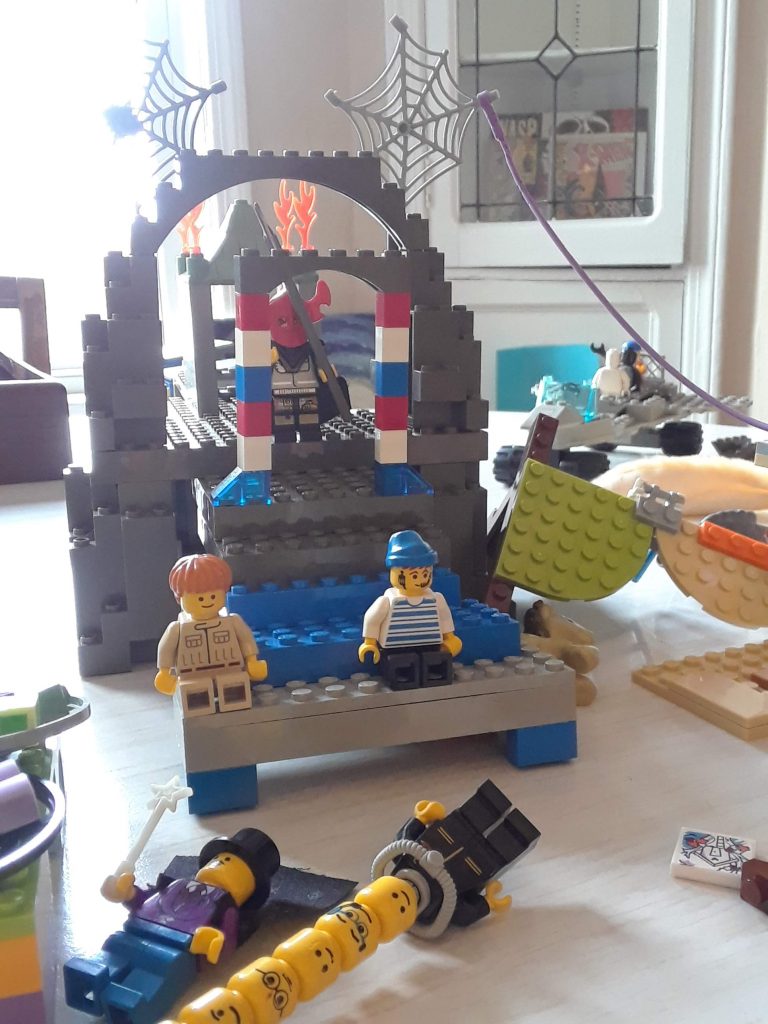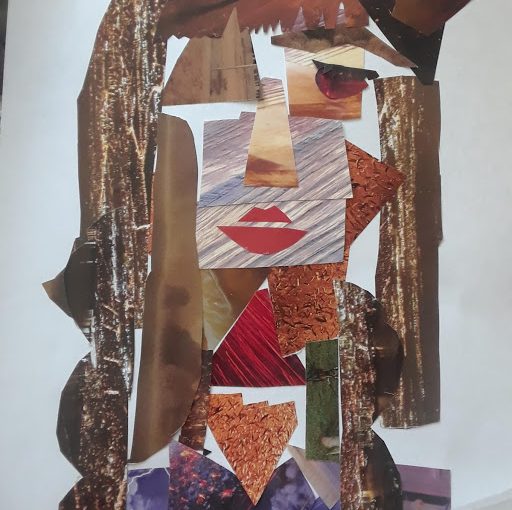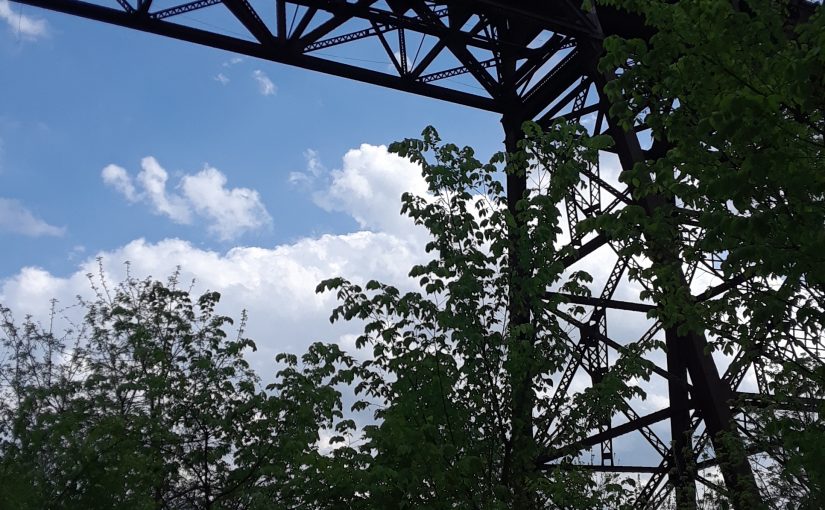by Amanda R. Howland
Originally published as “Forty-Fifth Week of Motherhood” as part of the 52 Weeks of Motherhood Project by Nova Doula Services December 2015
Before my daughter was conceived, I knew myself. This knowing was part of the nest I built for her: I would not drag her down with my lack of identity or center. I was a writer and noise musician, a witch, a punk, a yogi who drank in the dark. Pregnant, I sang to her day and night. I meditated. I read. My third trimester was basically a hermitage. I was ready for her. My husband, too, had been making himself ready for her. We were not young parents. We had wanted this for years, and we were fortified.
My husband and I left our home on August 7, 2013, the day of our daughter’s planned C-section birth (she was breach, sitting upright inside me like a little Buddha), with lists and supplies and mantras. The birth was easy and happy. I felt deeper peace and joy with my almond-eyed baby on my breast than I’d ever known.
After that afternoon, we knew no peace for months.
Could it really be that I was getting no more than twenty minutes sleep at a time for that first week? My daughter had a hard time latching; she dropped a pound and turned yellow. I never knew such horror.
My husband had to return to work two days after we returned from the hospital. He works first shift in a factory and needs some minimum amount of sleep to stay safe. And so at three, four in the morning, I paced the living room alone with my daughter, who would not stop crying and could not drink. I held her tight because I didn’t trust my arms to hold her, and I kept my eyes open because I didn’t trust my legs to hold us up. Feeding and sleep issues, by necessity, improved to the level of survival: a breastfeeding support group and the visiting nurse set us up with plastic nipples and syringes and formula, and my daughter’s pediatrician said I had to sleep, and that my husband could take her for four hours in the afternoon and give her a feeding of formula two hours in with a syringe and his finger.
And so for months our days went like this: when my husband got home from work, often after stopping at the store for diapers and wipes and chocolate and vegetables, he would take our daughter for four hours. I would try to sleep, but the exhaustion and anxiety often kept me up for a while. Maybe I’d get two or three hours. When I was finally out cold, he would bring her back in to me. I’d feel so depressed upon waking around nine or ten at night because I knew I’d be up for the next twenty hours.
Our room was lit twenty-four hours a day with pink Christmas lights so I could change her through the night, twelve diapers a day. It was like a different room than the one we’d lived in before. I’d sit up and nurse, which did hurt for a long time because of latch issues, but at least was working. I sat with an aching back and situated the rubber nipple over my nipple and positioned my daughter on the nursing pillow in the football hold, which was the only one that worked until months later when deliberate positions gave way to natural ones. I wish I’d known more about safe co-sleeping. I was afraid to risk it, but now I can see how it can be done, and it might have made all the difference in my experience of post-partum anxiety.
Then my husband would make dinner, really great dinners: vegan chili or curry and salad. We’d eat together and this was the best part of the day. But then he’d have to go to bed, and the night fear would start.
I wanted sleep, and all other things of the water element: fruit, sex, liquor. I did have showers and fruit and constant drinking water. I wanted touch. I never got ‘touched out’ with my daughter: skin-to-skin was the saving grace. My husband, for a while, wasn’t available emotionally or for physical affection. Though I was lonely, I know now he was showing his love through his dedication. He was sleep-deprived and scared himself, and basically working from seven am until midnight, between working at the factory, shopping, cooking and sitting with our colicky baby, who cried the entire four hours he watched her.
Again, if I knew then what I know now, I would realize she didn’t really need to nurse an hour on each side, thus constantly, around the clock, since babies need to nurse every two hours, starting from when the last session began. She must have just been suckling for comfort? But she was so small. I was afraid she would dry up in the night, and wither away.
And for long stretches of the day and night she would only stop crying when she was nursing.
After one fourteen-hour stretch of nonstop crying, as I sang broken Motown songs to her, thinking the loneliness would get the best of us, I took her to the doctor who diagnosed her with reflux. Treating that helped.
Her head and fine hair were so soft, we called her the peach baby. Things got better very slightly and slowly. At two weeks, three weeks, I thought, how has this not been six months? People always say this goes so fast.It was summer when we went into the hospital, but my upside down days made me feel we’d been thrust into winter.
But there was love and beauty. She smiled. She said ‘gah’. Sometimes when she nursed, and her eyes would close, she looked like a very tiny beautiful woman. I realized I’d objectified babies, in a way, and now I saw her as a compressed human being, all potential, like the miniature maple leaf coming out of its bud.
Fresh local peaches arrived. Just what I wanted. But as I slid the knife into the flesh of the fruit, I imagined a knife going into my baby’s soft, peachy scalp, and I couldn’t eat them.
Walking down the street with her for the first time, holding her, I imagined people pulling over and getting out of their cars and shooting her. I knew this was not going to happen, but I also knew that children around the world werebeing killed, and holding a baby in such a world became unbearable.
The news became grotesque. Stories of violence against women and girls suddenly sprung up everywhere. I won’t add to your suffering with the details, but the details stabbed at me then.
There were more moments of peace. And sometimes, when she was asleep in her bassinet, and my husband was asleep, I felt such joy. But then I’d leap up and stare hard at her with dry eyes, was she still breathing?
I thought I would never be happy again, but if she survived, then at least I could live. I thought I’d never write again, or let loose and laugh with my friends, or experience any kind of pleasure, but it was strangely liberating because I thought, I don’t care, as long as she’s ok.
But survive what? The first year? To adulthood? Mortality was a tenderness I could not bear.
There were endless bad things that could happen to her now and in the future, and I felt I had to run through each one in my mind and mentally solve and prevent it and try not to think about it, otherwise, the void was bound to take her back.
The gift of all that at least was I became forced to live in the present moment. Survival could only mean now.
I am here with my baby now. And now. And now.
I knew I was trapped in a paradox: all the activities in my life that had soothed my existential fear were unavailable to me, now that I needed them the most. It was just me and this small being, whom I loved so much I could barely look at without feeling staggering grief.
It was during the forty-fifth week of pregnancy, that is, when our daughter was five-and-a-half-weeks-old (she was born at thirty-nine weeks), that our friends had a party at a cottage on the beach in Geneva. It was the Saturday before the full moon, near the equinox, and I couldn’t believe it was still summer.
Of course we couldn’t go, and it hurt. I imagined them frolicking, drinking, laughing on the beach, the waves crashing on the rocks. The moon smiling over the water. We’d been there, before. I held my daughter and felt scared like I did when I longed for some old freedom, that if I allowed myself to long too much, she would be taken away.
And yes, things were getting a little better. Slightly longer stretches of sleep at night, maybe two hours at a time here and there.
But that day I read a fact that hit me like a bolt between the eyes: today’s temperature highs will be the temperature lows of 2050.
What have we done.
My husband took our daughter for my rest. I could sharply hear her crying, as we’d just put the air conditioners away. I couldn’t sleep. Images of a world with wars over water, the rape and murder and torture that comes with desperate pillaging, animals drying up, their sad soft bodies. I knew all this when I decided to have a child. I looked the other way and hoped things would end up ok.
I panicked because, if I couldn’t get the two or three hours sleep, how would I be able to stay up for twenty more hours and take care of her?
The minutes flew past as I tried to will myself to sleep. Finally, I just got up, feeling all dried out and exhausted by the work of despair.
I nursed my daughter, sitting up on the couch with the nursing pillow in place and her small growing body cupped in my left arm. She gnawed and I blinked dry eyes. She put her hands on my skin. At some point recently, we didn’t need the rubber nipple anymore, which was great, but without seeing the milk on the nipple, I doubted my supply. Did she nurse all day and all night because she wasn’t getting enough? But her cheeks and thighs were getting fuller. I stroked her small back and she looked up at me.
I told my husband, very carefully, about 2050, and not sleeping, about our friends at the cottage. And I could hear how slow and strange my voice was. I wanted him to tell me that the future would be just fine, and I knew he could not tell me this.
It was ten at night and the sun was down, but he said, “Let’s go to the park. Let’s go look at the moon.”
We drove in the dark to the closest park on the shore, not far, and on the way I felt panic. I felt eager to get it over with, but then, there was no rest to come home to. The air was newly crisp, and the moon was waxing fat.
We were desperate, our little family, desperate to find the night, the end of summer, the moon.
I smiled for my husband, but any drunk driver heading back to the suburbs from a bar crawl could end our happy little life in any number of gruesome ways I couldn’t get out of my head.
We parked. I cracked the window. The air held the last thickness of summer, the first cold of fall.
Then I saw a light in the sky. And another light. My heart went to my throat. I stared in disbelief as I saw what looked like blazing jellyfish rise in the sky – I couldn’t tell if they were big and far or close and small. I asked my husband if he saw them, too. He said yes, and we sat in the car. I could tell he was scared, too. What was it? Some kind of bomb or UFO? Was it real? But what else could it be? The fire blossoms lifted unnaturally into the sky. Should we leave? Go back home? Strange orbs of light – it was hard to believe, but there it was. We were all quiet.
We decided to carefully get out of the car.My husband smiled and said, No, look, and touched my arm. As I stepped out of the car, my perspective tilted, and I saw the balls of fire were close, coming from just farther north in the parking lot. What parked cars before had hidden was revealed to be a family. Older and younger people, and children, tossing something flaming into the air that dissolved before it reached the height of the tops of the trees.The family was releasing beautiful burning balloons into the sky.
The relief was staggering.
I exhaled. We laughed. My husband said he’d seen something like this before in Malaysia as a boy. Playful orbs. I looked at my daughter, small in her giant car seat, watching us with big lashy eyes. I carefully took her out of her seat and wrapped her in the black sling against my chest, and I put the little black robbers’ cap, which had come with the sling, on her head.
We walked into the park.
We saw black slashes of trees against blackest blue sky, and living black water. It was a tonic. And the moon! The moon lit up the park. The sound of the water and the shivering trees and the light of the moon all told us we were in a sacred place. I held our daughter close as we walked and grew calm. We introduced them all to our new daughter: the lake, vast and breathing as a sea, and the grass and trees and sky and moon. I hadn’t walked freely anywhere larger than a room in our apartment or a hospital room since before she was born. Another life. Then we looked closely and saw our daughter was looking up at that pearly bright moon against the black sky, and the moon shone on her face! The night was a mother.
I will always remember our daughter’s face bathed in moonlight, looking up with conscious presence from under her little black cap, returning the gaze of the moon.
Back at home, my husband played guitar to us as I nursed our daughter in my arms.
And now, nearly two years later, everything is fine. We are who we were, but stronger. We’re still nursing, and it’s easy and sweet, and we sleep, and our strong little daughter pulls back the bedroom curtains and calls the moon by name.
Please check out the entire 52 Weeks of Motherhood Project here: https://novadoulaservices.org/52weeksofmotherhoodwk45/



